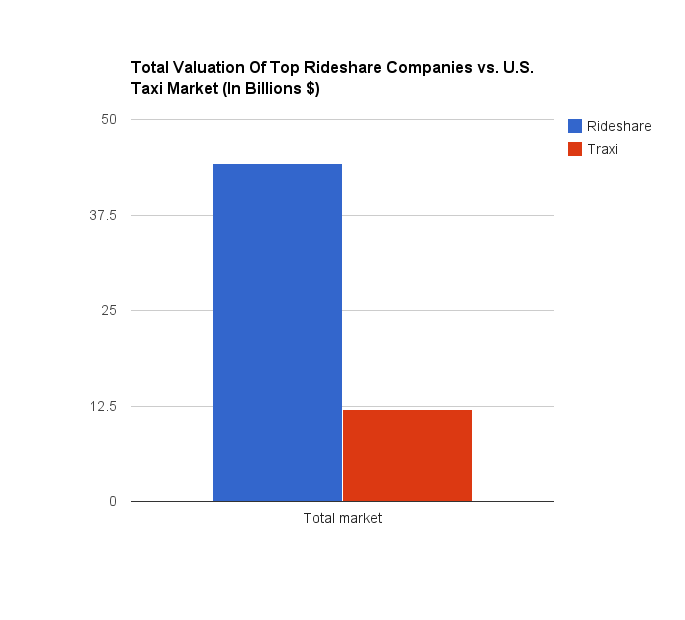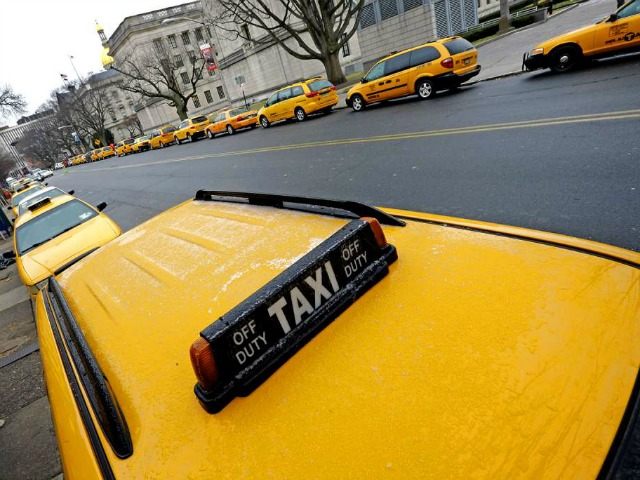
In just a few years, a handful of Silicon Valley ridesharing companies have created a new market that’s worth multiple times the entire U.S. Taxi industry.
Today, the second biggest ridesharing company, Lyft, announced a $500 million investment round, giving it a total valuation of around $2.5 billion. It’ll need at least that much money to compete with the king of the ridesharing industry, Uber, which is valued at a whopping $41 billion.
For comparison, the taxi and limousine industry generates just $12 billion in revenue, according to research firm, IBISWorld.
In part, this is the taxi industry’s fault: unions purposefully limit the number of taxi drivers to maintain a predictable wage for their members. Each driver is required to get a “medallion” before they can join a recognized cab company.
It turns out that demand for taxi-like services was much, much greater than the old industry realized. It’s failure to predict the future has taken a costly toll on cab drivers. Last Fall, the San Francisco Examiner reported that taxis had seen a 65 percent drop in average daily trips.
This shouldn’t be unexpected. Unionized industries generally have trouble innovating. One economic study found that electing to form a union leads to a 8 percent drop in innovation. Now that technology is coming for more industries, any unionized company will have a harder time keeping up with their startup competitors.
Of course, these are back-of-the napkin calculations, mostly because accurate statistics are hard to come by. And, valuations aren’t the same as revenue, but it’s a nice mental anchor. In just a few years, two small companies have dominated an established market.

COMMENTS
Please let us know if you're having issues with commenting.